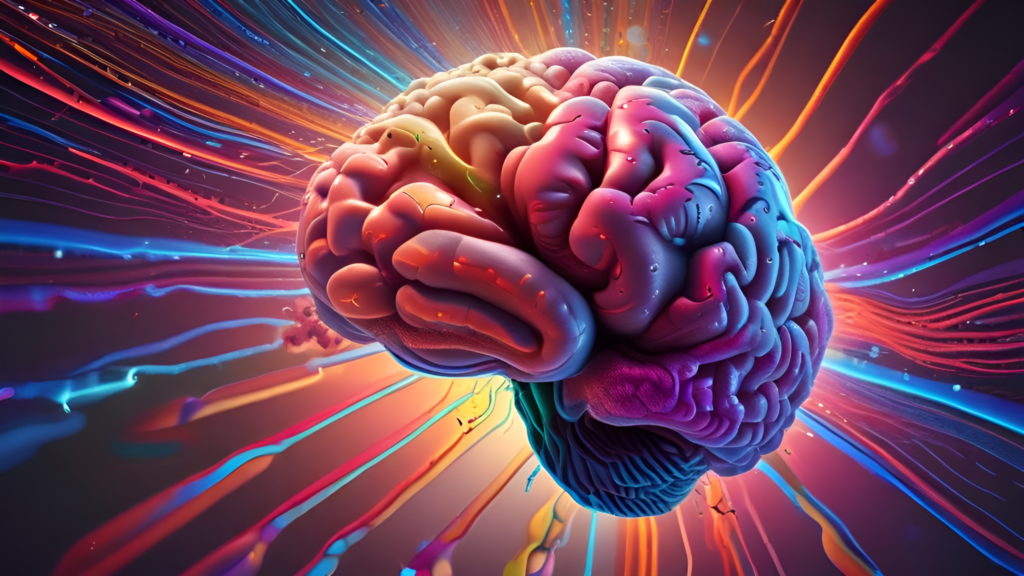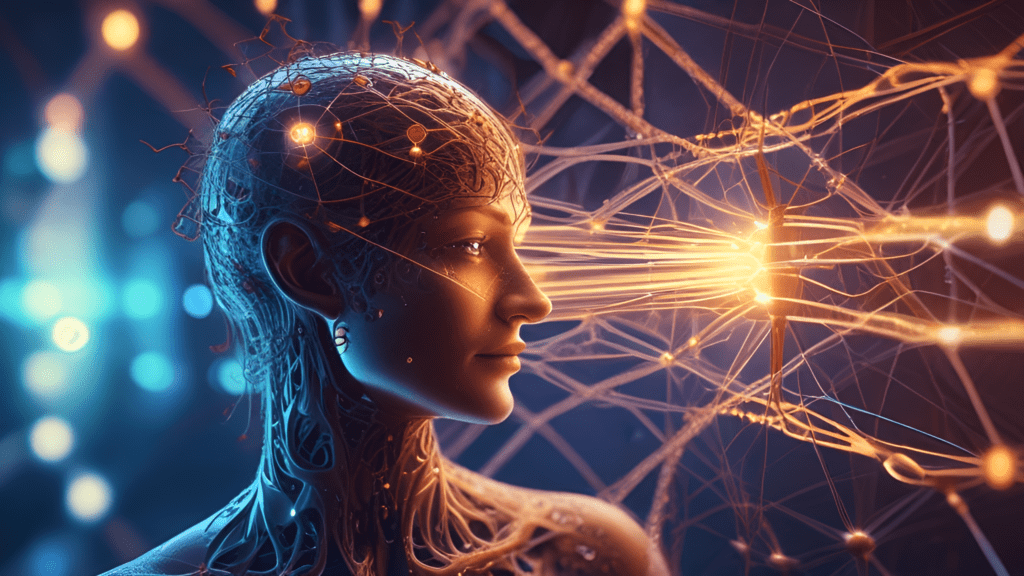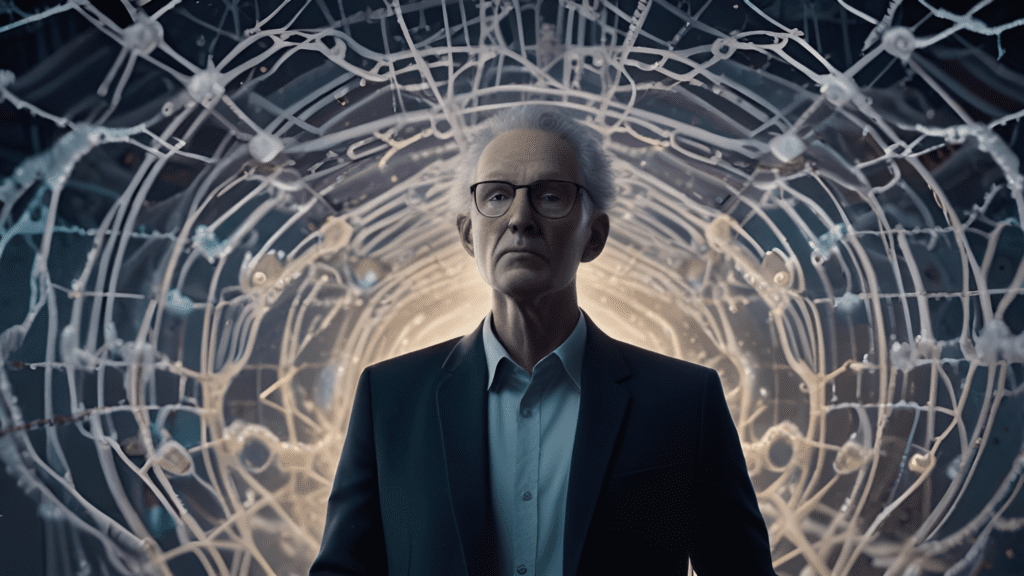Have you ever wondered if your thoughts have the power to shape the world around you? It may sound like science fiction, but the concept of quantum consciousness sparks mind-bending discussions at the intersection of science and spirituality. What if the very act of observing reality influences it? This is where quantum physics, the study of the tiniest particles in existence, collides with the enigmatic world of human consciousness.
Quantum consciousness proposes that our thoughts, beliefs, and intentions may not be confined to our brains but could interact with the quantum realm, influencing the fabric of reality itself. This is a bold idea, challenging our conventional understanding of how the universe works and opening up a whole new realm of possibilities.
While still hotly debated within the scientific community, quantum consciousness theories like Orchestrated Objective Reduction (Orch OR) and biocentrism are gaining traction. These theories suggest that consciousness isn’t just a byproduct of the brain but a fundamental force interwoven with the quantum processes that underpin reality.
Buckle up because we’re about to embark on a journey into the mind-bending world of quantum consciousness. We’ll explore how our minds might interact with matter, the potential for thoughts to create reality, and the profound implications this could have for our understanding of the universe and ourselves.
Let’s dive in, shall we?
Unveiling Quantum Consciousness: A Deeper Look

So, what exactly is quantum consciousness? It’s more complex than it might sound. At its core, it’s the idea that the strange and counterintuitive principles of quantum mechanics might play a role in how our minds work and perceive reality. Think of it like this: if our brains are made up of atoms and molecules, which operate according to quantum laws, could those same laws influence our thoughts, feelings, and consciousness?
In the quantum world, particles can exist in multiple states simultaneously (superposition). They can be instantaneously connected over vast distances (entanglement). This has led some scientists to propose that our minds might also operate similarly, with our thoughts and feelings existing in a superposition of possibilities until we observe them, causing them to “collapse” into a single state.
One fascinating theory is Orchestrated Objective Reduction (Orch OR), proposed by physicist Roger Penrose and anesthesiologist Stuart Hameroff. They suggest tiny structures within our brain cells called microtubules might act as quantum computers, orchestrating our conscious experiences.
Another theory, biocentrism, takes an even bolder stance. It proposes that consciousness isn’t a byproduct of the brain but a fundamental property of the universe, on par with gravity or electromagnetism. In this view, consciousness gives rise to the universe, not the other way around.
Of course, these are just theories, and we still need to learn more about how consciousness works. But the exciting thing is that scientists are actively investigating these ideas, pushing the boundaries of our understanding of both the mind and the quantum realm.
Let’s explore one of the most intriguing aspects of quantum physics, the observer effect, and how it might connect to the power of our minds.
The Observer Effect: A Window into Mind-Matter Interaction

Now, let’s explore one of the most fascinating aspects of quantum physics: the observer effect. In a nutshell, the observer effect suggests that observing a quantum system can change its behavior. It’s as if particles don’t have definite properties until someone (or something) measures them.
The classic example is the famous double-slit experiment. When particles are fired at a screen with two slits, they create an interference pattern, as if they were waves passing through both slits simultaneously. But when scientists try to observe which slit each particle goes through, the interference pattern disappears, and the particles act like individual particles again. It’s almost as if the particles “know” they’re being watched and change their behavior accordingly.
But what does this have to do with consciousness? Some scientists believe that the observer effect might not just be about any measurement but specifically about conscious observation. Could our awareness and attention play a crucial role in collapsing the quantum wave function and bringing reality into existence?
This idea is undoubtedly controversial, and not all scientists agree. Some argue that the observer effect can be explained without invoking consciousness. In contrast, others see it as a tantalizing clue that our minds are deeply connected to the quantum world.
If the observer effect does involve consciousness, it raises some incredible possibilities. Could our thoughts, intentions, and beliefs influence the behavior of quantum particles and, by extension, the physical world around us? Some researchers are exploring this idea through experiments on the power of intention, where individuals try to influence the outcome of quantum events through their thoughts alone.
While science is still in its early stages, the observer effect has ignited our imaginations and sparked new questions about the nature of reality and our place. Could we be co-creators of our reality? Could our minds have a more direct influence on the world than ever imagined? These are the kinds of questions that quantum consciousness encourages us to explore.
Let’s move on to the next section, where we’ll delve deeper into the concept of the quantum mind and how it might shape the reality we experience.
Quantum Mind and the Nature of Reality

Suppose the observer effect suggests our minds can influence the quantum world. In that case, it’s natural to ask: what about the larger-scale reality we experience? The concept of the quantum mind proposes a fascinating answer. Our brains aren’t just classical computers but might utilize quantum processes to create our thoughts, feelings, and conscious awareness.
Imagine our brains as a symphony of quantum interactions, with neurons firing harmoniously with quantum fluctuations. This quantum mind could explain how we make decisions, form memories, and experience the world around us. It could even provide a mechanism for the mind-matter interaction suggested by the observer effect.
But how would this quantum mind shape reality? Well, consider the power of intention. Studies have shown that our beliefs, expectations, and intentions can influence outcomes. For example, the placebo effect demonstrates how a belief in a treatment can lead to actual physical changes in the body.
Could this power of intention be rooted in quantum processes? Some researchers believe so. They propose that our intentions, through the quantum mind, could interact with the quantum field, influencing the probabilities of events and manifesting specific outcomes. It’s like our thoughts and beliefs sending ripples through the quantum fabric of reality, shaping the world around us.
There’s also anecdotal evidence from people who have experienced quantum consciousness’s power firsthand. Stories of spontaneous healings, intuitive insights, and seemingly miraculous coincidences have been reported by individuals who believe they’ve tapped into the creative potential of their quantum minds.
Of course, it’s essential to approach these claims with a healthy dose of skepticism. While the idea of our minds shaping reality is exciting, we still need to learn more. More research is needed to explore the mechanisms behind mind-matter interaction and determine how much our thoughts can influence the physical world.
Despite the uncertainties, the concept of the quantum mind opens up a world of possibilities. It suggests that we have more agency and influence over our lives and the world than we ever imagined. By understanding the quantum nature of our minds, we might unlock new potentials for healing, creativity, and personal transformation.
In the next section, we’ll explore the profound philosophical implications of quantum consciousness, including questions of free will, the nature of reality, and the relationship between mind and matter.
Quantum Consciousness: Philosophical Implications

Prepare to have your mind bent even further as we journey into the philosophical territory of quantum consciousness. This is where the rubber meets the road, where science bumps up against those big, existential questions that have captivated humanity for centuries.
If our thoughts and intentions can nudge reality at the quantum level, does that mean we have free will? Or are our actions predetermined by a chain of quantum events stretching back to the dawn? Quantum consciousness offers challenging answers, but it does invite us to re-examine these age-old debates.
Then there’s the nature of reality itself. If consciousness is fundamental, as some theories suggest, then our universe isn’t just a cold, empty expanse of matter. It’s a participatory dance where our minds are active players, co-creating the reality we experience. This notion, sometimes called the participatory universe, blurs the lines between subject and object, mind and matter. It suggests that we’re passive observers of the cosmos and active participants in its unfolding story.
The relationship between mind and matter also takes on a new dimension in the light of quantum consciousness. Instead of seeing them as separate entities, we might view them as two sides of the same coin, interconnected and interdependent. This could have profound implications for our understanding of everything from mental health to spiritual experiences.
Quantum consciousness even offers a potential bridge between science and spirituality. Many spiritual traditions have long asserted the interconnectedness of all things and the power of the mind to shape reality. While science traditionally shied away from such concepts, quantum consciousness suggests they might not be so far-fetched. Once focused on the material world, could science lead us back to a more holistic, interconnected view of reality?
As we grapple with these philosophical questions, it’s important to remember that quantum consciousness is still a young and evolving field. There are many unanswered questions and differing interpretations. But that’s part of what makes it so exciting. It invites us to explore the mysteries of the mind and the universe with fresh eyes, to question our assumptions, and to embrace the unknown.
The Future of Quantum Consciousness Research

The quest to understand quantum consciousness is far from over. It’s just getting started. Scientists worldwide actively explore this mind-bending frontier, conducting groundbreaking experiments and developing innovative theories.
One promising area of research involves studying quantum effects in biological systems. Researchers are investigating whether quantum processes play a role in everything from photosynthesis to bird navigation. If quantum phenomena are widespread, it would lend further credence to the idea that our brains, too, could harness quantum effects.
Another exciting avenue is the development of theoretical models of quantum consciousness. These models aim to explain how quantum processes in the brain could give rise to subjective experiences like thoughts, feelings, and awareness. While still in their early stages, these models are helping us to refine our understanding of how consciousness might emerge from the quantum realm.
The potential applications of quantum consciousness research are vast. Imagine a future where we can harness the power of our quantum minds to enhance our well-being, creativity, and even our spiritual connection to the universe. Some researchers believe quantum consciousness could lead to breakthrough medical, psychological, and personal development.
However, as with any emerging technology, there are also ethical considerations and potential risks to consider. Could manipulating quantum consciousness be used for harmful purposes? How do we ensure that this knowledge is used responsibly? These are essential questions that scientists and society must grapple with as this field advances.
Despite the challenges, the future of quantum consciousness research is incredibly bright. As we continue to explore the quantum nature of our minds, we may be on the verge of unlocking a new understanding of ourselves and the universe we inhabit.
Stay tuned for the next section, where we’ll tackle some frequently asked questions about quantum consciousness!
FAQs About Quantum Consciousness
The world of quantum consciousness is filled with mind-boggling concepts that spark curiosity and raise numerous questions. Let’s tackle some of the most frequently asked questions to shed more light on this fascinating topic:
Q: What is quantum consciousness?
A: Quantum consciousness is the idea that quantum mechanics, the theory that describes the behavior of the smallest particles in the universe, plays a role in how our minds work and experience consciousness. It suggests that our brains utilize quantum processes like superposition and entanglement to create our thoughts, feelings, and awareness.
Q: Is there scientific evidence for quantum consciousness?
A: While there’s no definitive proof, growing evidence suggests that quantum processes might be involved in consciousness. Research on the observer effect, the power of intention, and the potential for quantum effects in biological systems contribute to our understanding of this complex topic. However, there’s still much to learn, and different interpretations exist within the scientific community.
Q: How could quantum consciousness change our understanding of reality?
A: If quantum consciousness is proven true, it would revolutionize our understanding of reality. It could suggest that consciousness isn’t just a byproduct of the brain but a fundamental aspect of the universe. This could have profound implications for our understanding of free will, the nature of time and space, and the relationship between mind and matter.
Q: What are the potential applications of quantum consciousness?
A: Quantum consciousness could open up new possibilities in various fields. In medicine, it might lead to new treatments for mental disorders or even enhance our ability to heal ourselves. In psychology, it could help us understand the power of our thoughts and beliefs to shape our reality and well-being. It could also inspire new technologies that harness the power of the quantum mind for personal growth and transformation.
Q: Is quantum consciousness the same as New Age spirituality?
A: While quantum consciousness might resonate with some spiritual beliefs, it’s important to distinguish between scientific inquiry and spiritual faith. Quantum consciousness is a scientific hypothesis that seeks to explain the nature of consciousness through the lens of quantum physics. While it might raise questions about the nature of reality and our place in it, it’s ultimately a scientific endeavor grounded in empirical evidence and rigorous research.
I hope this FAQ section has shed some light on the intriguing world of quantum consciousness. As this field continues to evolve, we can expect even more fascinating discoveries and insights in the future.
Conclusion
As we’ve journeyed through the mind-bending landscape of quantum consciousness, one thing is clear: our understanding of reality is far from complete. The connection between mind and matter, the power of observation, and the potential for consciousness to shape the world around us are all concepts that challenge our conventional worldview and beckon us to explore the unknown.
While the scientific community continues to debate and investigate these ideas, quantum consciousness has already sparked a profound shift in how we perceive ourselves and our place in the universe. It invites us to consider the possibility that we are not merely passive observers but active participants in creating our reality.
As we move forward, the journey of exploring quantum consciousness promises to be filled with exciting discoveries and paradigm-shifting insights. Whether you’re a scientist, a spiritual seeker, or simply a curious mind, the implications of quantum consciousness are sure to captivate your imagination and challenge you to think differently about the nature of existence.
The adventure has just begun. Keep exploring, keep questioning, and let your curiosity guide you on this incredible journey into the depths of human consciousness and the mysteries of the quantum world.




